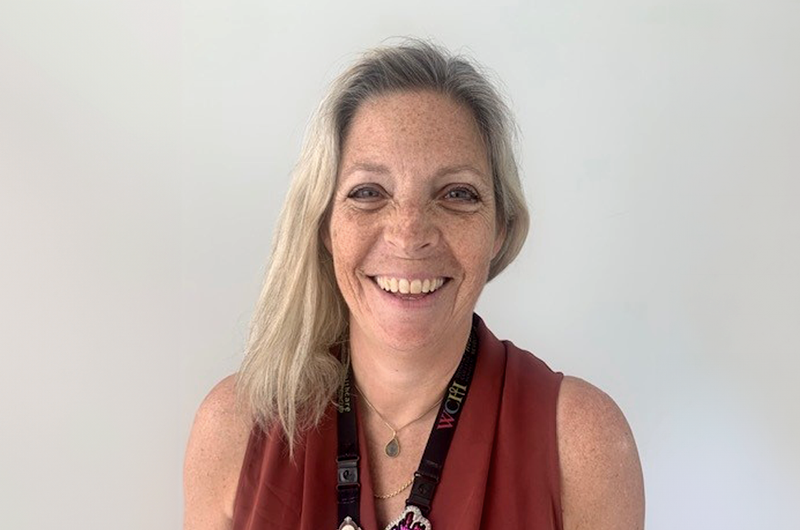Q&A with Jacqueline Follis
Choosing Wisely Canada sat down with Nursing Lead Jacqueline Follis to discuss the launch of the upcoming Community of Practice and the future of nursing in Canada.
Q&A with Jacqueline Follis
Choosing Wisely Canada sat down with Nursing Lead Jacqueline Follis to discuss the launch of the upcoming Community of Practice and the future of nursing in Canada.

Jacquie Follis is Choosing Wisely Canada’s inaugural Nursing Lead. Before joining the team in 2023, Jacquie worked as an advanced practice nurse in professional practice at Women’s College Hospital (WCH), deepening her interest in quality improvement (QI) efforts. During her time at WCH, Jacquie developed a new version of the Registered Nurses Association of Ontario Best Practice Guideline Program, utilizing an evidence-based culture to improve patient experience and health outcomes, lower cost of care by preventing complications, and enrich staff satisfaction. Jacquie is now gearing up to launch a Community of Practice, putting out a call to Canadian nurses to collaborate with others and advance nursing leadership in Choosing Wisely Canada.
Choosing Wisely Canada: From your perspective, what is the goal of the Nursing Lead position?
Jacquie Follis: Choosing Wisely Canada has collaborated with many nursing organizations including the Canadian Nurses Association and Nurse Practitioners Association of Canada to develop recommendations and raise awareness in nursing practice. In my role, I hope to strengthen these existing relationships and create new connections through education and community-building efforts. With this engagement, I want to highlight those nurses who are already engaged in Choosing Wisely work, provide nurses with a forum to showcase their presence, and engage more nursing voices in QI health care discussions. This is where the Community of Practice comes in.
CWC: What is the role of the Community of Practice in achieving this goal?
JF: We launched a call to nurses across Canada who are involved with or interested in Choosing Wisely activities locally or nationally. The goal of the Community of Practice is to provide a platform to discuss recommendations, share implementation success stories and challenges, and identify collaboration opportunities with nursing professionals. We received a broad response from nurses all over the country looking to be engaged in this activity. I’m very excited about it! Now, we are assessing how we can best support these professionals in QI in their local contexts.
One of the strengths of nursing is that we are embedded in so many levels and areas of health care. I feel quite passionate about leveraging that influence to break down barriers and implement QI activities to provide safe, quality care.
CWC: What do you hope will be the long-term impact of this project?
JF: My hope is that nurses engaged in the Community of Practice gain expert experience and become more visible leading health care and QI initiatives. There can often be structural barriers for nursing professionals who wish to do this work, including protected time for improvement-related projects. But, nurses know how to accomplish tasks within their organizations, and it is important that we tap into their expertise and system knowledge to find solutions to issues in health care.
These efforts will bring more attention to nursing leadership in Choosing Wisely at the regional and national levels and I’d like to see nurses co-leading QI changes based on recommendations alongside other clinicians. The more nurses we have involved in Choosing Wisely, the greater impact we can make in creating positive changes in health care.
CWC: Why is it important for you to encourage Choosing Wisely and resource stewardship in practice?
JF: It can be challenging for health care workers to stay current with new research, guideline changes, and recommendations. In spite of many efforts in the QI environment, there has not been an improvement in the 17-year gap between new research and practice changes. Choosing Wisely Canada provides a centralized location to access the most current recommendations around resource stewardship. These recommendations give health care providers information on what we should be doing more of and also what we can do less of to improve patient care. This is always the primary goal. In our current health care environment, we have finite resources, both physical and human. It’s imperative that we decrease unnecessary testing and treatments to make sure that nurses are able to continue to provide high-value care to our patients. Ensuring that we can engage people and help them to learn how to make those changes is vital.
